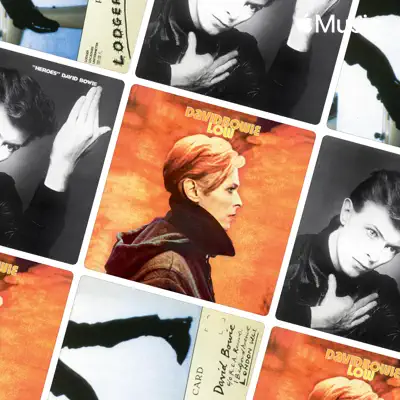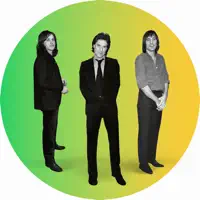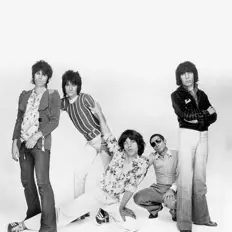Rock
England
David Bowie
David Bowieの他のアルバム
アーティストのプレイリスト
David Bowieについて

出身地
London, England
誕生日
January 8, 1947
ジャンル
Rock
Back at the height of the Ziggy Stardust era, David Bowie told an interviewer that he’d always felt like a vehicle for something else, even if he could never quite figure out what that something else was. For all the times he changed his getup—the glam alien of Ziggy, the moody existentialist of the late ’70s, the pop sophisticate of the ’80s, and so on—he was, in his way, remarkably consistent, a barometer of where the culture was and a glimpse of where it was going. Gender fluidity, the hybridization of rock and electronic music, the transformative power of the internet: Bowie was never there first per se, but he was always there early, a transformative figure who managed to bring challenging ideas into mainstream culture in a way that felt stylish, digestible, exciting, and most of all possible.
Born David Jones in 1947, Bowie was raised in the suburbs of London, converting to the gospel of rock ’n’ roll after hearing Little Richard. He took a minute to find his creative footing (“The Laughing Gnome”—brace yourself), but by his early twenties he’d become a major force in English pop, exploring themes of alienation (“Space Oddity”), identity (“Changes”), and futurism (“Life On Mars?”) while developing a performance style steeped in everything from mime to kabuki and avant-garde theater—a sense of visual identity that would last him the rest of his career.
For three decades, Bowie rarely took more than a year between albums, exploring chilly, electronic art-rock (Low and the so-called Berlin Trilogy), pop (the early MTV hits Let’s Dance and Tonight), the noisy U-turn of the Tin Machine era, and the quasi-industrial sound of such ’90s albums as Outside and Earthling. As prominent and productive as he was, he became more enigmatic as his career went on, a noble stoic at the outer reaches of pop music. His final two albums, 2013’s The Next Day and 2016’s Blackstar (released two days before his death), were among the grandest—and starkest—of his career.
His final video, for the song “No Plan,” was released posthumously on what would have been his 70th birthday. Bowie doesn’t appear in the clip, at least not live. Instead, we see him in freeze-frame on a TV in the window of a rundown electronics store, just for a few seconds near the very end, a little fuzzy: Not a person, but an image fixed on the screen.
Born David Jones in 1947, Bowie was raised in the suburbs of London, converting to the gospel of rock ’n’ roll after hearing Little Richard. He took a minute to find his creative footing (“The Laughing Gnome”—brace yourself), but by his early twenties he’d become a major force in English pop, exploring themes of alienation (“Space Oddity”), identity (“Changes”), and futurism (“Life On Mars?”) while developing a performance style steeped in everything from mime to kabuki and avant-garde theater—a sense of visual identity that would last him the rest of his career.
For three decades, Bowie rarely took more than a year between albums, exploring chilly, electronic art-rock (Low and the so-called Berlin Trilogy), pop (the early MTV hits Let’s Dance and Tonight), the noisy U-turn of the Tin Machine era, and the quasi-industrial sound of such ’90s albums as Outside and Earthling. As prominent and productive as he was, he became more enigmatic as his career went on, a noble stoic at the outer reaches of pop music. His final two albums, 2013’s The Next Day and 2016’s Blackstar (released two days before his death), were among the grandest—and starkest—of his career.
His final video, for the song “No Plan,” was released posthumously on what would have been his 70th birthday. Bowie doesn’t appear in the clip, at least not live. Instead, we see him in freeze-frame on a TV in the window of a rundown electronics store, just for a few seconds near the very end, a little fuzzy: Not a person, but an image fixed on the screen.
David Bowieは、Tin Machine、The Manish Boys、Davy Jones & The Lower Third、The Lower Third、The Riot Squad、Davie Jones & The King Bees、Band Aidのメンバーとしても楽曲をリリースしています。
影響を受けたアーティストDavid Bowieが影響を受けたアーティストにはThe Kinks、 The Rolling Stones、 The Beatlesなどが含まれます。
David Bowieから影響を受けましたDavid BowieはDua Lipa、 Lady Gaga、 Miguelやその他の音楽に影響を与えてきました。
David Bowieに似た曲やアーティスト
David Bowieに似た他の音楽やアーティスト(たとえばThe Rolling Stones、 Talking Heads、 The Beatlesなど)をもっと見つけましょう。














![David Bowieの「1. Outside (The Nathan Adler Diaries: A Hyper Cycle) [2021 Remaster]」を聴こう。 David Bowieの「1. Outside (The Nathan Adler Diaries: A Hyper Cycle) [2021 Remaster]」を聴こう。](https://is1-ssl.mzstatic.com/image/thumb/Music211/v4/5d/88/50/5d885094-c60d-9423-c79d-c2f6df212aad/190295253363.jpg/276x276bb.webp)




![David Bowieの「Never Let Me Down (Japan Edition) [2019 Remaster]」を聴こう。 David Bowieの「Never Let Me Down (Japan Edition) [2019 Remaster]」を聴こう。](https://is1-ssl.mzstatic.com/image/thumb/Music124/v4/81/44/68/81446830-e6db-41b2-a351-3cf7d8f0d196/190295535247.jpg/276x276bb.webp)



![David Bowieの「Scary Monsters (And Super Creeps) [2017 Remaster]」を聴こう。 David Bowieの「Scary Monsters (And Super Creeps) [2017 Remaster]」を聴こう。](https://is1-ssl.mzstatic.com/image/thumb/Music124/v4/71/fe/14/71fe14df-5d77-9d69-2968-c38b6bfa82a4/190295842598.jpg/276x276bb.webp)












![David Bowieの「David Bowie (aka Space Oddity) [2015 Remaster]」を聴こう。 David Bowieの「David Bowie (aka Space Oddity) [2015 Remaster]」を聴こう。](https://is1-ssl.mzstatic.com/image/thumb/Music125/v4/29/ef/55/29ef556e-ef70-9c6a-a36f-07eab04d453d/825646286102.jpg/276x276bb.webp)















































